In a nutshell: Quranic Arabic differs from Modern Standard Arabic (MSA) in vocabulary, grammar, style, and pronunciation, preserving words, structures, and eloquence unique to the Quran. While MSA is used in media and formal speech, Quranic Arabic maintains classical expressions, poetic rhythms, and Tajweed rules for precise recitation. Though both share the same linguistic roots, mastering Quranic Arabic deepens one’s connection to the Quran, unlocking its true meaning and beauty.
Today, I will talk with you about something important for your journey in learning and memorizing the Quran: the Quranic Arabic, and how it relates to the Arabic language you might hear today, Modern Standard Arabic, or MSA.
Many of you, coming from non-Arab backgrounds, may feel a little… confused? Intimidated? When you start to learn Quran.
You might be learning some Arabic words and rules, maybe from a book or an app, and then when you open the Quran, it feels… a little different. That’s normal!
To understand this, let’s explore it together, in a way that is easy to understand, Insha’Allah.
Is Quranic Arabic Different From Normal Arabic?
Yes, Quranic Arabic is different in some ways from the Arabic you might hear on the news or read in modern books.
It’s like, maybe in your country, the language people spoke 100 years ago is a little different from how you speak today.
Same root, same language, but some words change, some ways of saying things change.
What is Quranic Arabic?
Quranic Arabic is the language of the Quran, which was revealed over 1400 years ago. It is a classical form of Arabic.
The Arabic that is spoken today in different Arab countries is also beautiful, but it has changed over time. There is also something called Modern Standard Arabic (MSA).
What is Modern Standard Arabic (MSA)?
Modern Standard Arabic (MSA) is a more simplified, standardized form of Arabic that is used in formal places like television, schools, and newspapers across the Arab world. MSA tries to be a common language for everyone, but this MSA has some differences with Quranic Arabic.
Now, don’t let this scare you! It’s not like learning a completely new language.
Think of it like this: if you know English now, you can probably still understand some old English from Shakespeare, right?
Maybe some words are different, and the way they put sentences together might be a bit strange, but you can still get the main idea.
It’s a bit like that with Quranic Arabic and modern Arabic. They share the same roots, the same basic grammar, but there are some special things about Quranic Arabic that we need to learn.
Is Fusha the Same as Quranic Arabic?
You might also hear the word “فُصْحَى” (Fusha). This basically means “eloquent” or “classical” Arabic. Quranic Arabic is Fusha, in its highest and most perfect form.
Modern Standard Arabic is also considered Fusha, but as we have seen, it has some differences with the Fusha of the Quran.
Think of Quranic Arabic as the original, pure Fusha, and MSA as a modern form that is based on it.
Why is there a Difference Between Quranic Arabic & Modern Arabic?
Well, the main reason is time. Language is always changing. People start using new words, old words might not be used so much anymore, and even how we put sentences together can shift a little.
Think about how many new words for technology we have now that didn’t exist even 50 years ago!
Also, the Quran is not just any book. It is the word of Allah, and its language is very special. It has a beauty, a rhythm, and a power that is unique. The way things are said in the Quran, the vocabulary that is used, it all has a purpose. It is meant to touch our hearts, to make us think, and to guide us. So, sometimes, the way things are said in the Quran is more precise, more eloquent than how we might say them in everyday conversation now.
And, alhamdulillah, Allah promised to protect it. Allah says in Surat Al-Hijr (15:9):
“إِنَّا نَحْنُ نَزَّلْنَا الذِّكْرَ وَإِنَّا لَهُ لَحَافِظُونَ”
“Indeed, it is We who sent down the Qur’an, and indeed, We will be its guardian”
This promise extends to the language itself. Because the words are so important, Allah has preserved them perfectly. This means the grammar, the vocabulary, the style… everything is preserved as it was revealed to our beloved Prophet Muhammad (peace be upon him) over 1400 years ago.
Quranic Arabic vs. Modern Standard Arabic (MSA)
To make this clearer, let’s look at some simple examples. Here are some of the key differences between Quranic Arabic and MSA that are important for you, as learners of the Quran:
1. Vocabulary Between Quranic Arabic & Modern Standard Arabic
This is probably the most noticeable difference. Many words are the same or very similar, but Quranic Arabic contains some words that are not commonly used in MSA today, or they might have slightly different meanings.
Similarly, MSA has developed new vocabulary to describe modern inventions and concepts that were not around at the time the Quran was revealed.
For example, in the Quran, you find the word The word: الْأَبَّ, which exists in Quranic Arabic but no longer used in MSA.
It is mentioned in Surah Abasa (80:31):
“وَفَاكِهَةً وَأَبًّا”
“Wafakihatan wa-abban”
“And fruit and grass.”
The word (أَبًّا) mean is grass, or what sheep eat. This word does not exist in the modern Arabic language.
Another example is the word “الْفُرْقَانَ” (al-furqan).
“تَبَارَكَ الَّذِي نَزَّلَ الْفُرْقَانَ عَلَىٰ عَبْدِهِ لِيَكُونَ لِلْعَالَمِينَ نَذِيرًا”
“Blessed is He who has sent down the Criterion upon His Servant that he may be a warner to the worlds” (Surah Al-Furqan, 25:1)
While “فَرْق” (farq) meaning “difference” is common in MSA, “ الْفُرْقَانَ” (al-furqan) with its specific religious meaning as “the Criterion” (often referring to the Quran itself or the ability to distinguish between right and wrong) is more specific to religious texts.
Another example in Surah Yusuf (12:19), the word “سَيَّارَةٍ” (sayyaarah) is used:
“وَجَاءَتْ سَيَّارَةٌ فَأَرْسَلُوا وَارِدَهُمْ”
“And there came a caravan [of travelers], so they sent their water drawer”
Here, “سَيَّارَةٍ” (sayyaarah) means a group of travelers, a caravan. But today, in modern Arabic, “سَيَّارَة” usually means a car, like an automobile. So, if you just learned the modern meaning, you might be a little confused when you read this verse
This doesn’t mean you won’t encounter these words in MSA, but their frequency and primary usage might differ.
2. Grammatical Structures Between Quranic Arabic & Modern Standard Arabic
The grammar of Quranic Arabic is very precise and rich. The basic grammatical rules are the same as in MSA, but you will find some differences in sentence structure and the way things are expressed.
Quranic Arabic sometimes uses more complex sentences with clauses and sub-clauses. The style is also highly eloquent and sometimes uses rhetorical devices that might not be as common in modern writing.
For instance, you might find a more frequent use of certain verb forms or specific ways of constructing conditional sentences in the Quran compared to contemporary Arabic. However, it’s important to note that the core grammatical framework remains consistent.
MSA tends to use simpler sentence structures.
But don’t worry too much about this now! At Quranica, we will guide you step by step. We have many lessons here at Quranica about Arabic grammar. Join our Arabic Grammar course now.
3. Style and Eloquence of Quranic Arabic
The style of the Quran is unlike anything else in the Arabic language. It has a flow, a rhythm, and a way of using words that is incredibly powerful and moving. This is part of what makes the Quran a miracle.
You will find things like:
- Conciseness: The Quran can say a lot with very few words. Every word is chosen carefully and has a deep meaning.
- Figurative Language: The Quran uses metaphors, similes, and other figures of speech to help us understand complex ideas in a way that is easy to grasp and remember.
- Rhythm and Rhyme: The verses of the Quran often have a beautiful rhythm and sometimes rhyme, especially at the end of the verses. This makes it easier to memorize and also adds to its beauty when it is recited.
For example, look at the end of Surah Al-Zalzalah (99:7-8):
“فَمَن يَعْمَلْ مِثْقَالَ ذَرَّةٍ خَيْرًا يَرَهُ”
(Fa man ya’mal mithqaala dharratin khayran yarahu)
“وَمَن يَعْمَلْ مِثْقَالَ ذَرَّةٍ شَرًّا يَرَهُ”
(Wa man ya’mal mithqaala dharratin sharran yarahu)
“So whoever does an atom’s weight of good will see it, And whoever does an atom’s weight of evil will see it”.
Notice the similar structure and the rhyming at the end of each verse (“يَرَهُ” – yarahu). This is a common feature in the Quran that adds to its beauty and memorability.
4. Pronunciation Between Quranic Arabic & Modern Standard Arabic (in some aspects)
The modern Arabic script is based on the script used for the Quran, but there can be subtle differences in pronunciation.
Tajweed is the science of reciting the Quran correctly. It has very specific rules about how to pronounce each letter, how long to hold certain sounds, where to pause, and so on. While you can technically read the Quran without Tajwid, it’s not recommended. It also helps preserve the correct meaning, because even a small change in pronunciation can sometimes change the meaning.
Modern Standard Arabic does not have these specific pronunciation rules.
In MSA, especially in spoken MSA, people might not always be so strict with the long and short vowels. Also, some letters, like the “ق” (qaf) and “ج” (jeem), can be pronounced slightly differently in some regions when speaking MSA compared to the way they are traditionally pronounced in Quran recitation.
It’s important to learn the rules of Tajweed, which preserves the beautiful sounds and rhythms of the Quranic text.
At Quranica, we place great emphasis on teaching Tajweed correctly.
Should You Learn Quranic Arabic or Normal Arabic?
If your goal is to understand and memorize the Quran, then learning Quranic Arabic should be your priority. It will help you understand the words of Allah in their true form. However, if you want to communicate in Arabic daily, then learning Modern Standard Arabic is also beneficial.
Can You Learn the Quran Without Knowing Modern Arabic?
Yes, you can! Many non-Arabic speakers memorize the Quran without learning modern Arabic. However, understanding the Quran deeply requires some knowledge of Arabic.
At Quranica, we help students learn Quranic Arabic in a simple and effective way, focusing on key words, expressions, and sentence structures that appear frequently in the Quran. This method allows students to understand and connect with the Quran faster.
Join Us at Quranica: Your Home for Quran Learning
Here at Quranica, we understand the unique needs of non-Arab learners who want to connect with the Quran. Our experienced teachers, many of whom are Huffaz, are passionate about helping you on this journey.
Our courses are designed to:
- Focus on Quranic vocabulary and grammar from the very beginning.
- Teach you the correct pronunciation and Tajweed rules.
- Help you understand the meaning and context of the verses.
- Help you memorize the Quran.
We believe that anyone who sincerely wants to learn the Quran can do so with the right guidance and dedication. Allah opens doors for those who strive for His sake.
So, come and join our Quranica family today. Let us learn the beautiful language of the Quran together, step by step.
Conclusion:
Quranic Arabic differs from Modern Standard Arabic (MSA) in vocabulary, grammar, style, and pronunciation. While both share the same linguistic roots, Quranic Arabic, being the language of the Quran, preserves words and structures that may no longer be common in contemporary Arabic. Some words, like “الْأَبَّ” and “الْفُرْقَانَ,” hold distinct meanings in Quranic usage but are either obsolete or carry different connotations in MSA.
The Quran’s grammatical structures are more intricate and eloquent, employing rhetorical devices, poetic rhythm, and precise expressions that set it apart from the simplified, standardized nature of MSA used in media and formal communication.
Quranic Arabic also follows Tajweed rules for precise pronunciation, ensuring clarity and preserving the Quran’s divine message, whereas MSA lacks such strict recitation guidelines. Despite these differences, learning Quranic Arabic is highly rewarding for those seeking a deeper connection with the Quran.
While MSA aids in everyday communication, Quranic Arabic allows believers to engage with the Quran in its purest form. At Quranica, we specialize in guiding students through structured lessons, helping them grasp Quranic vocabulary, grammar, and Tajweed effortlessly.
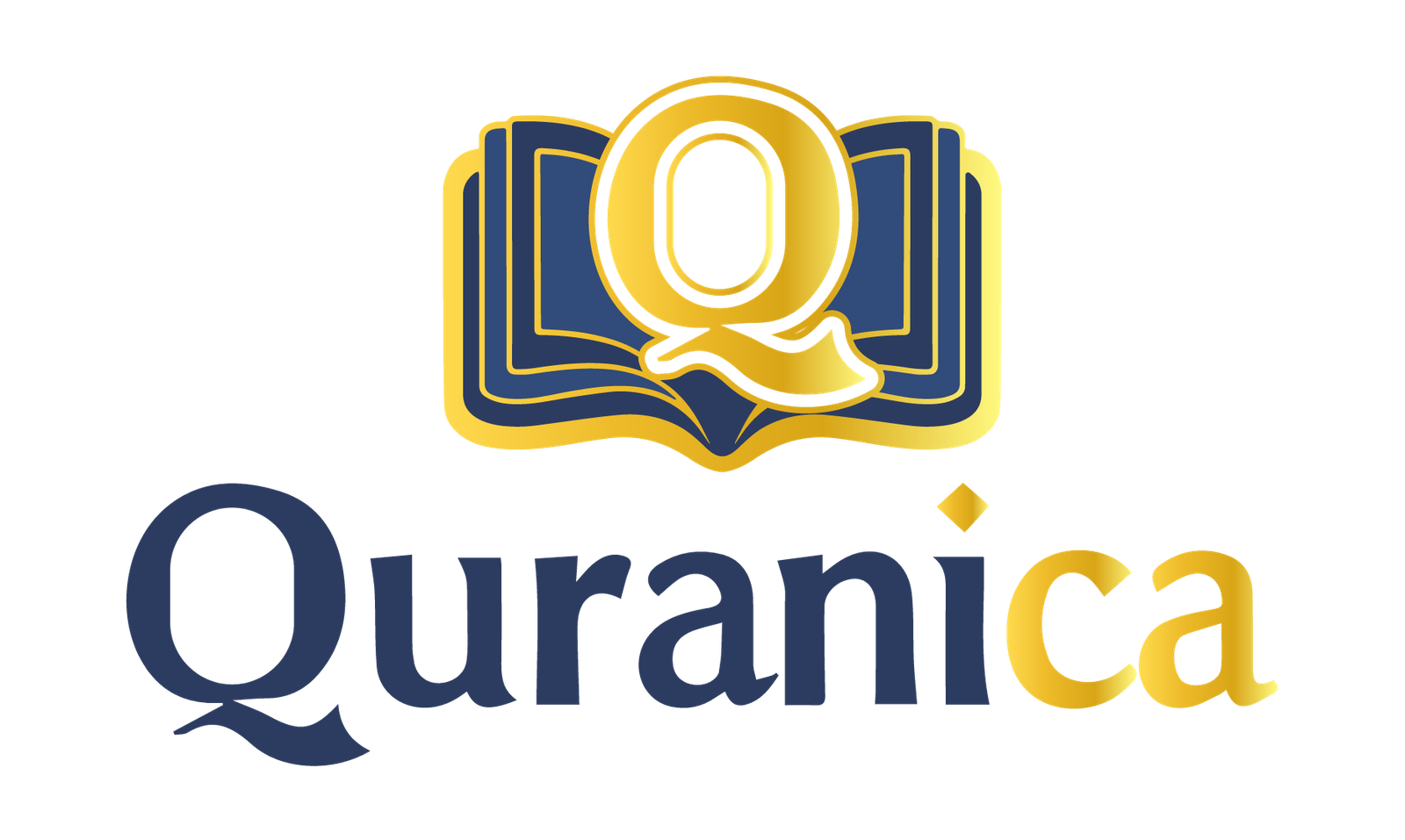
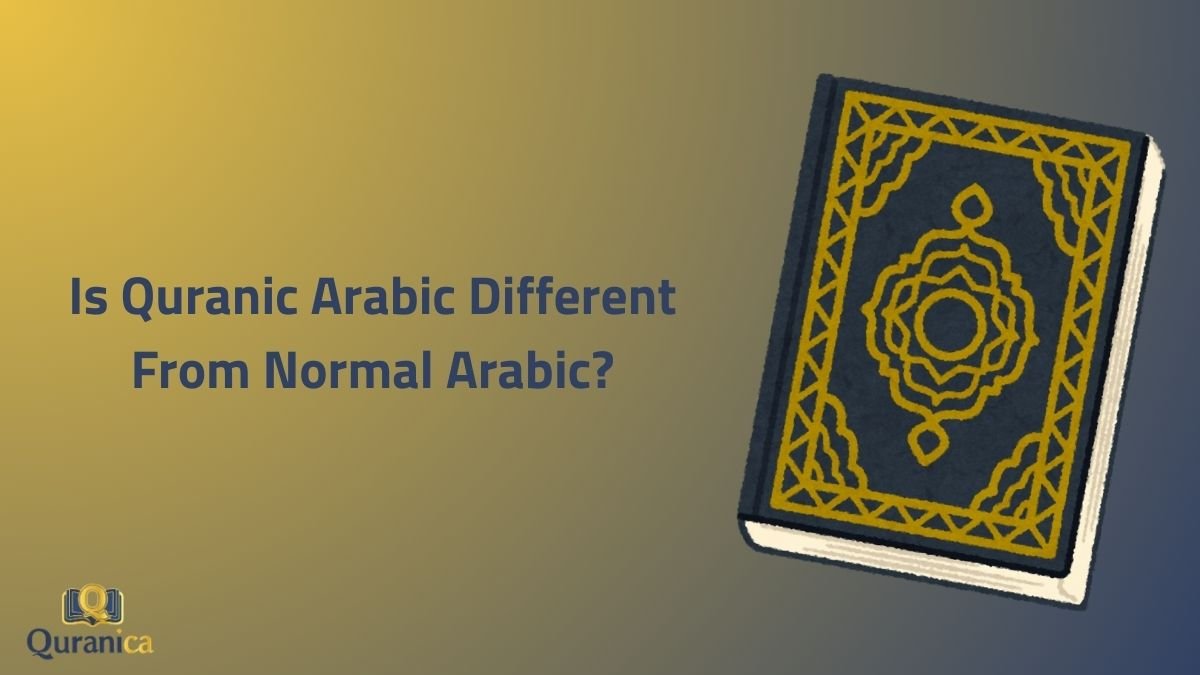
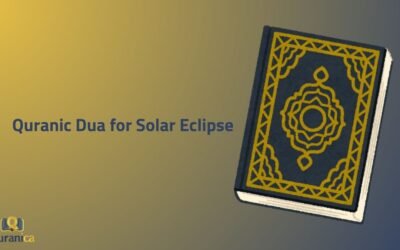


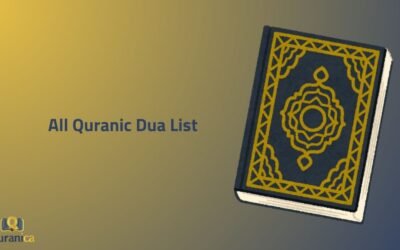
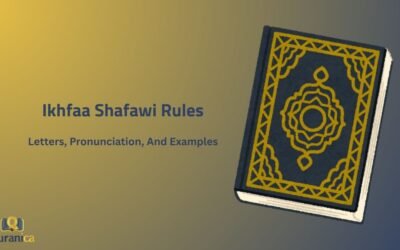
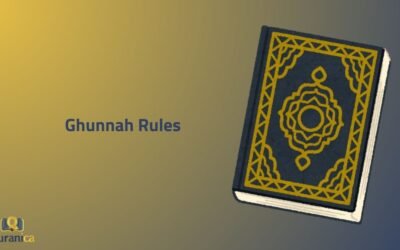
0 Comments